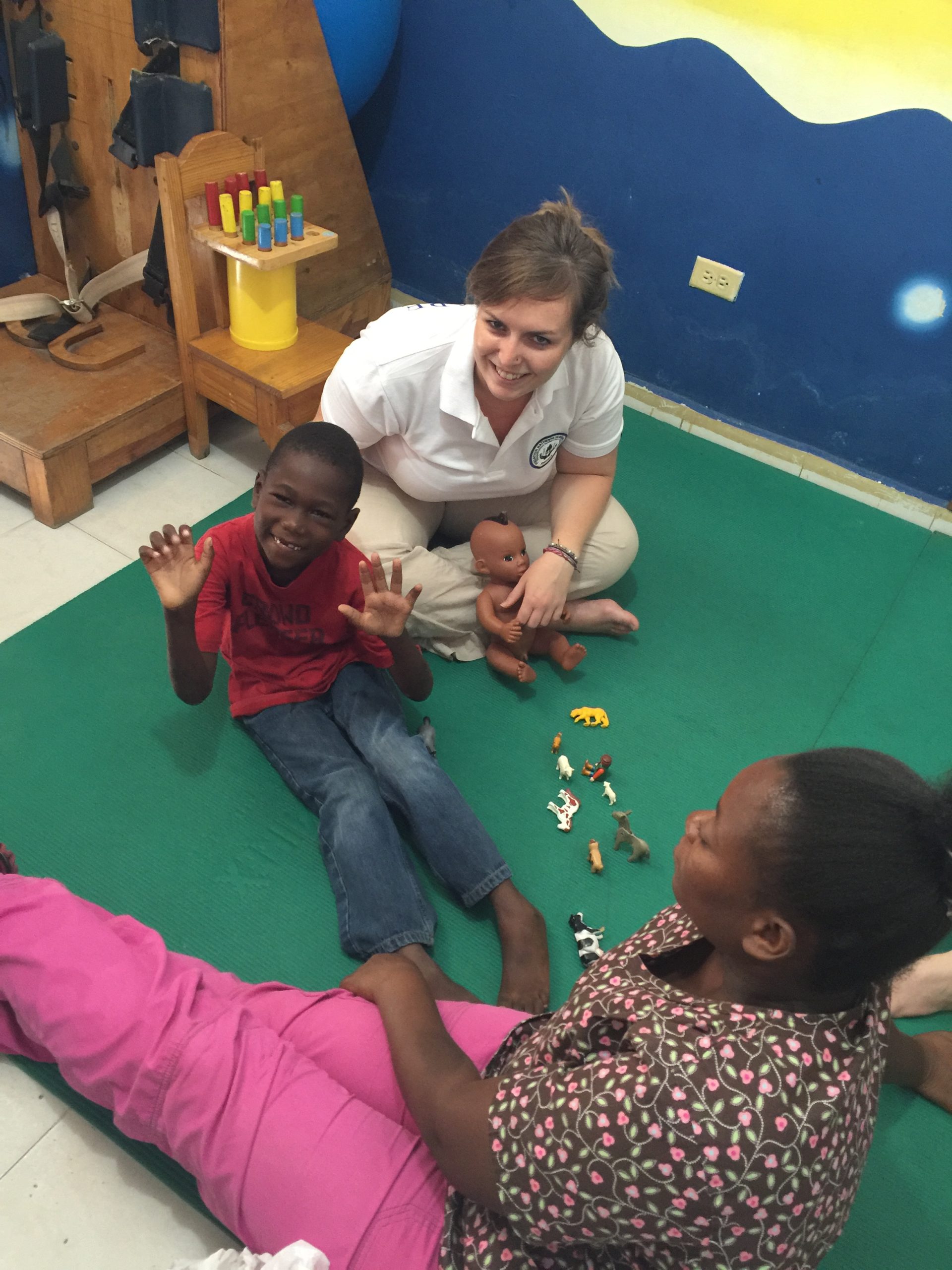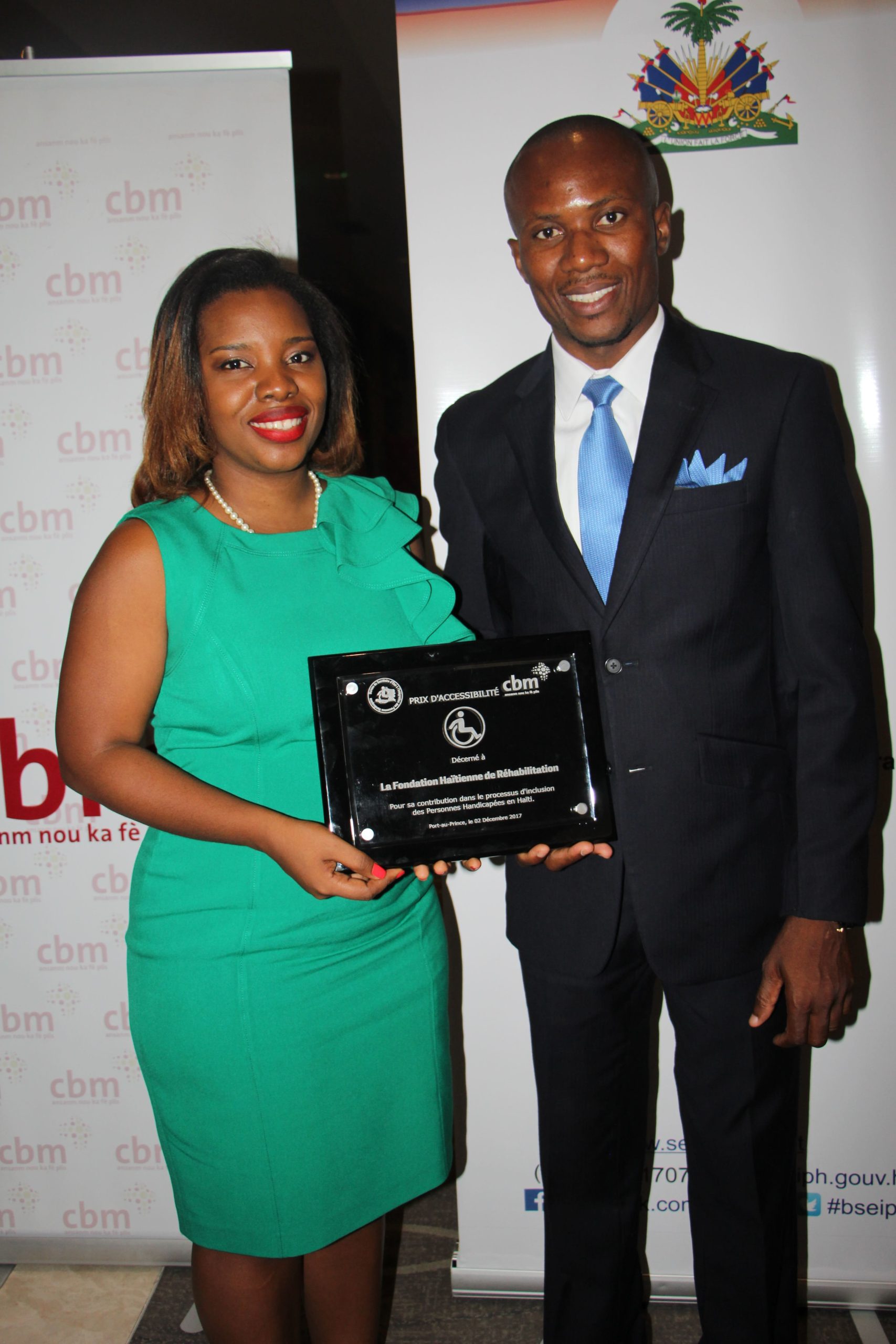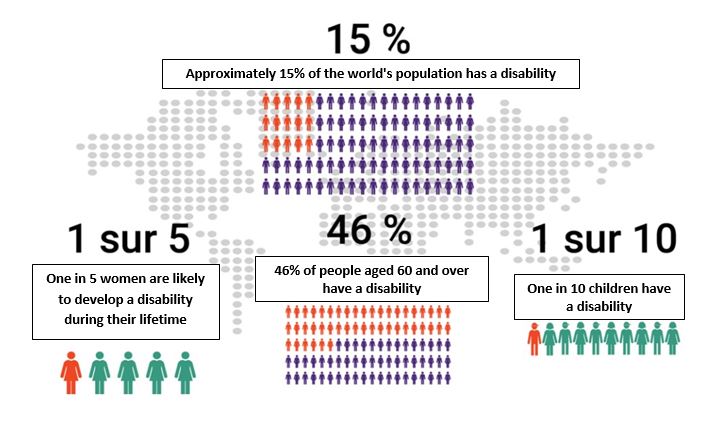Child Protection and GBV

Every human being is vulnerable
but this vulnerability does not necessarily lead to a state of dependence. For young children, this dependence is inevitable and unfolds in five domains: physical, cognitive, emotional, social and legal.
Effective protection of children is vital for their well-being because, due to their high vulnerability, they are more exposed to various problems of abuse, exploitation, discrimination and violence.
Haiti is one of the countries where we can easily find all the factors that attest to a high and increasing level of vulnerabilities of children, if we consider the level of poverty of families, the violence of armed gangs, trafficking of people, exploitation, mistreatment, discrimination and the incapacity of local authorities to deal with all this.
However, children with disabilities are doubly vulnerable compared to those who are not: they are vulnerable as children in the face of previously exposed problems and others in addition they are vulnerable by their dependence on other people throughout a large part of their life due to a physical, mental, sensory or intellectual disability; they are vulnerable by discrimination from their peers, by parents’ misunderstanding of their neurodevelopment and by a society based on prejudices and stereotypes about disability. To illustrate, According to UNICEF, around 240 million children worldwide are disabled, or 1 in 10 children. They are 49% more likely to have never been to school compared to children without disabilities.
Physical inaccessibility:
Students with disabilities continue to face physical barriers to educational services, such as lack of ramps or elevators in multi-story schools, heavy doors, inaccessible washrooms and lack of accessible school transport... Some children are particularly vulnerable to violations of their rights because of an aspect of their identity or circumstances.
For example:
whether they have a disability or are deprived of their family. For example, a child with a physical disability may need his or her parents' help with dressing, eating, and bathing even as he or she grows. A child who has an intellectual disability or a disorder such as dyspraxia or Attention deficit hyperactivity disorder (ADHD) also requires more daily support.
A Disabled Child Means a Child
hearing impairment (including deafness), speech or language impairment, visual impairment (including blindness), severe emotional disorder, orthopedic impairment, have autism, traumatic brain injury, other health impairment, specific learning disability, deaf-blindness or multiple disabilities and who, because of this impairment, require specialized education and related services.
The protection of children’s rights being one of the essential concerns of the Foundation for Haitian Rehabilitation (FONHARE) becomes a cardinal perspective no longer to be neglected in order to ensure the well-being of our children especially those the most vulnerable (the disabled children).
To relieve the ills of disabled children
strengthen family dynamics and inclusion for their full development, FONHARE implements the following activities:
- Training of parents on childhood disability and the behavior of children with different types of disability.
- Realization of playful dynamics between parents and children facilitating better harmonization, understanding and trust.
- Realization of playful dynamics between disabled children and non-disabled children facilitating the acceptance of human diversity towards an inclusive and resilient society.
- Advocacy and community awareness on respecting children’s rights to avoid abuse.
are beneficiaries in 2023, of which 408 are girls.
children are victims of domestic violence.
are in a situation of extreme malnutrition
.
Women and Disabled: double discrimination
“Disabled women are twice as exposed to domestic, social and institutional violence as other women. One in 5 women are likely to face a disability in their life. «Being a woman and disabled is too often a double discrimination, our duty being that as an organization it is to intervene to put an end to this injustice»
Overall, women with disabilities represent 19.2% of the world’s female population. Despite their quantity, their vulnerability, their plight does not attract as much world attention to them. According to the experience of FONHARE on the ground in the north-east of Haiti, women with disabilities suffer from chronic violence and they also find themselves excluded from basic services (education, health, work, protection) for wealth creation, well-being and personal development. In Haiti it is clearly visible that more than 90% of women with disabilities in rural and urban areas do not have the means to meet their needs, and are dependent on their loved ones.
Violence
People with disabilities are 130% more likely to be victims of violence than people without disabilities. For women with disabilities, the problems of domestic violence (twice the risk) and sexual violence are the most common, and the difficulties linked to travel also make them more vulnerable. “The risk of sexual violence for women is all the higher because their disability generally involves great proximity and dependence on one or more adults around them and because social and cultural stereotypes mean that women and girls do not have no right to manage their own sexual life and reproductive health.
Disability is a major cause of discrimination in Haiti, sexism is another. If these two issues are well known, another is much less so: «double discrimination» that many women with disabilities experience and this is a problem largely ignored by public policies.
« Very often, when we talk about discrimination, we understand that there is only one criterion of discrimination, the one that is the most visible.” However, disabled women are also and first of all: women. Often, discrimination linked to gender is added to discrimination linked to disability. A “double system of inequalities” which nevertheless remains little studied in the world.
“In Haiti, the specific issues of women with disabilities are largely forgotten by public policies ».

Disabled Woman, “incomplete” Woman
Another notable prejudice is that women with disabilities are often considered “incomplete” women, asexual beings and not “real women”, according to APF France Handicap. As a result, they would have no love or sexual life and would be unable to take care of a child.
To illustrate, when a disabled man wants to live as a couple “We will say, these poor men, they have physiological needs, it is a natural impulse, we must support him in his choice. So when she is a disabled woman, we will rather ask her why she wants to be a mother, why she would want to have a fulfilling sex life, she will not know how to defend herself in a relationship – she would not need it.»

Achievements and Impacts
+ 200,000 people are sensitized about child protection and violence based on gender and disability.

